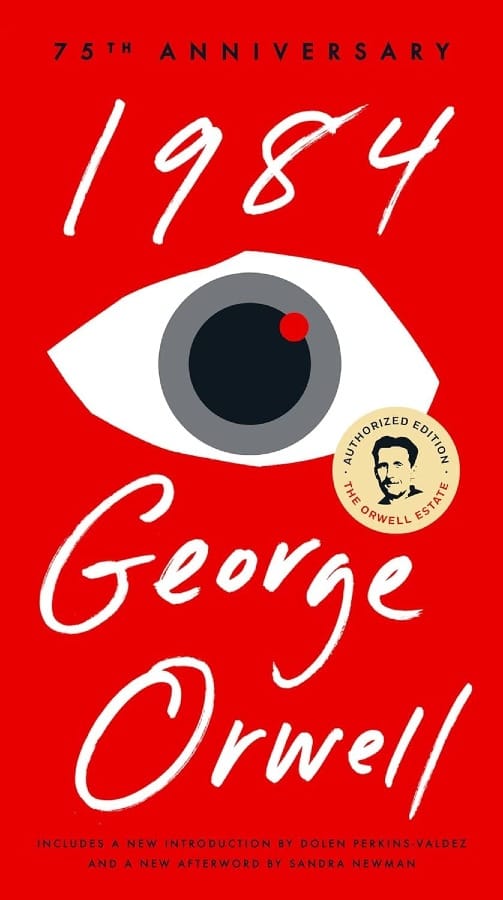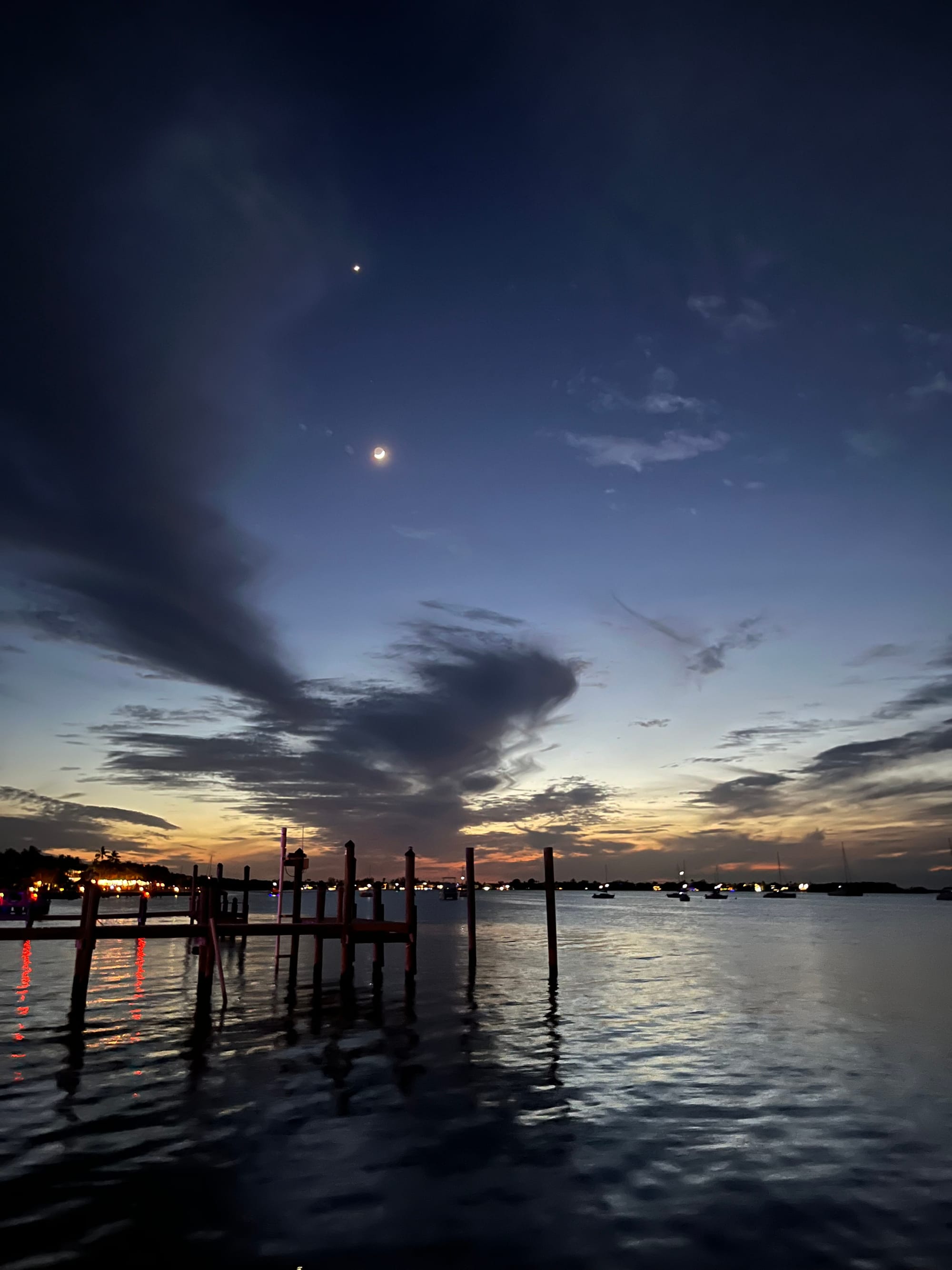1984: A Warning

I just finished reading George Orwell's 1984–a haunting, dystopian picture of life under a totalitarian government known as The Party, whose control over information is so complete that it is the sole arbiter, definer, and distributor of objective truth in the superstate of Oceania. Orwell gives us a glimpse into this world through the lens of Winston Smith, an aging, overall-wearing member of the Outer Party who tries and tragically fails to rebel against the seemingly omnipotent government entity that rules over him. Winston is far from a hero. His attempts at rebellion are feeble and rudimentary, and his sense of morality is far from that of a paragon. He is a normal citizen caught in the grasp of an entity much more powerful and intelligent than he. There is no happy ending for him–in the end he is broken by the Thought Police (shadowy regime agents who monitor the thoughts of Oceania's citizens), his independence shattered as he joins the cult of personality that unquestionably loves Big Brother (the hero of Oceania whose leadership is credited for every good thing in society), accepting Party lies as truth without question.
Goldstein's Book
Perhaps the most important piece of Orwell's novel is found at the end of Act 2, when Winston gets his hands on the writings of Goldstein, the proverbial enemy of the state. Goldstein is dubbed a terrorist by The Party; his snarling face appearing on television screens across Oceania every day in a propaganda session called the Two Minutes Hate, where Goldstein is blamed for every problem in society, and the citizens of Oceania are taught to despise the seemingly uncatchable, untraceable adversary. Winston comes into the possession of the supposed writings of Goldstein, in which the true nature of The Party is explained in detailed fashion, along with the true meaning of The Party's trio of slogans.
IGNORANCE IS STRENGTH
Goldstein describes society as being split into three classes: High, Middle, and Low. These classes are eternal regardless of time period. Also eternal are the motivations of the classes: The High acts to maintain their status; the Middle seeks to take the power the High holds, and often enlists the Low class to aid in its mission. Once in the position of the High, the Middle abandons the Low, becoming tyrants themselves; the Low aims that all humankind should be equal, but is often too burdened by the necessities of life to change existing power dynamics. Throughout history, as explained by Goldstein, there is a constant pendulum swing in which the Middle overthrows the High, and so forth. In 1984, the High are the members of the Inner Party, zealots who pull the strings of the government; the Middle are the Outer Party, those who serve the operational roles in the government, but are very much in the dark; the Low are known as the proles (proletariats), a whopping 85% of the population, too caught up in day-to-day life, and vices, to even wonder at the nature of their reality.
Goldstein then recounts the failures of past governance in antiquity to change this dynamic, from feudalism to socialism and capitalism, until the current form of governance came into play (the Party), with the intention of keeping power permanently. This new form of governance was brought about when it became feasible for true economic equality to take place in the world. With the industrialization of society, it was, for the first time in history, realistic to feed and clothe everyone in the world–a threat that the new High sought to prevent. Through a no nonsense methodology, coupled with advances in surveillance and information technology, it became possible to totally control public opinion.
The next passages explain the system by which the Party controls public opinion through the continuous alteration of the past and a term called doublethink, the act of believing two contradictory ideas at once. It is through this systematic warping of fact that the Party creates an environment of bulletproof ignorance which serves to bolster the Party's control over public discourse. Entire branches of the government are dedicated to altering old news articles and factoids to match whatever the current narrative may be. Interestingly enough, it is the members of the Party, both the Inner and Outer, which are most closely monitored for any deviation from the accepted pattern of thought. The Low–occupied by alcohol, harsh conditions, and gambling opportunities–are hardly given a second thought. When everyone is either completely in the dark about the reality of life or so befuddled by a lifetime of doublethink to make sense of inconsistencies, the Party as an entity persists in safety. Ignorance is strength.
WAR IS PEACE
There are three superstates that dominate the world in 1984: Oceania, Eurasia, and Eastasia. Goldstein explains that the advent of atomic weaponry created an environment of hesitancy–a cold war–between the three entities. With each having the ability to wipe out the other, battle lines became stagnant, save for the disputed territories of North Africa, the Middle East, and parts of Southeast Asia. Any battles that are still fought are in the disputed territories. These battles are for control over slave labor, resources, and geographic advantage, though nothing of significant consequence in actually defeating another superstate.
The truly chilling revelation of the situation described in Goldstein's book is the evolving nature of war as an idea. The three superstates realized a perpetual war effort could work as a vehicle to maintain the social class structure of society through calculated resource expenditure. If resources were constantly used up to create weapons of war, there would be no danger in raising the economic status of the lower class. If the lower class were stuck in a state of 'scraping by', the danger of rebellion would be mitigated. Thus, a continued war effort is necessary to maintain the status quo, given the three superstates are in no actual danger of being defeated by any of the others. War is peace.
FREEDOM IS SLAVERY
Winston doesn't get the chance to read Goldstein's chapter on this slogan (Spoiler Alert! The second act is tragic), though its meaning is apparent. In Oceania and the other two superstates, individualism is unthinkable. Freedom, when taken to mean personal liberty, is doomed to fail because of our selfish nature. Freedom, in the eyes of the party, can only be achieved through unquestioned servitude to the Party and its interests. This concept is baked into every waking moment of life in Oceania, as we see through Winston's day to day life. Freedom is slavery.
Notice how all three slogans are perfect examples of doublethink.

1984: 75th Anniversary
Written 75 years ago, 1984 was George Orwell’s chilling prophecy about the future. And while 1984 has come and gone, his dystopian vision of a government that will do anything to control the narrative is timelier than ever...
Current Relevance
Orwell published 1984 in 1949, just four years removed from the end of World War 2, in the midst of a Western panic over the nuclear-armed Soviet Union. Many in that time simplified Orwell's novel as a warning against the dangers of socialism and the derivative communism, but I think 1984's message is about the concept of governance in the general sense.
The totalitarian superstate of Oceania probably resembles modern day North Korea most closely. North Korea's citizens live in almost complete isolation from the rest of the globe, are subject to harsh conditions and oppression, and are taught to view the Kim family with an air of divine reverence–very much how Oceania's citizens are taught to revere Big Brother. That said, the rest of the world reflects Oceania in more subtle–but no less alarming–ways.
We are more connected than ever before. In today's society, our mediums of communication are far beyond what the Party in 1984 could ever dream of. We are chronically online, addicted to devices that we take wherever we go, and constantly surveilled. Corporations track our locations, purchase and search history, and store our data to sell to the highest bidder; it is not a stretch to assume that all of this information would be provided to a government if prompted. China has a social credit score. We are neck deep in a consumerist society where we trade liberty and privacy for the sake of convenience and entertainment. While we are busy watching Netflix, playing video games, or buying products on Amazon, corporations and governments alike rake in cash and influence while we are blissfully lost in our own entertainment bubbles, racking up lines of credit that many can't pay back. Increasingly, individuals own less property; instead, we rent. We borrow and borrow again, while the gap between the wealthy and the poor becomes larger and larger, with the middle class disappearing as the years pass. Not to mention the terrifying realities of the military-industrial complex that President Eisenhower warned the world of in the 1950s. Even in the "Free World" the individual is increasingly insignificant as federal governments expand rapidly in tandem with industry conglomerates. We are fed information from media sources that have agendas. It's becoming harder to tell who is telling the truth.
Where does all of this lead? I don't know. While I don't agree with Orwell that human motivation can be singularly reduced to the pursuit of power, one thing is for sure: Orwell's dystopian conceptualization–or at least a version of it–is possible. War can be rationalized as peace. Freedom can be perceived as slavery. Ignorance can be confused with strength.
Hope
In spite of all that doom and gloom I just spewed, I'm optimistic for the future. As the world becomes increasingly more connected, it's harder to hide things in the fog. The internet is a beautiful thing because it allows anyone with an opinion or a story to step in front of a camera and share their thoughts with the world. With wisdom as a guide, we can utilize our increasingly sophisticated advances to forge a better tomorrow. We can heed the warnings of minds like George Orwell and Aldous Huxley to avoid potential pitfalls. If we prioritize the truth, and seek it with earnest, I think we can find a way to navigate this crazy life together. We can choose to build instead of destroy.
Please, give 1984 a read. Orwell articulates his vision better than I could ever explain it. Let me know what you think!
Till next time,
Ethan Mark






